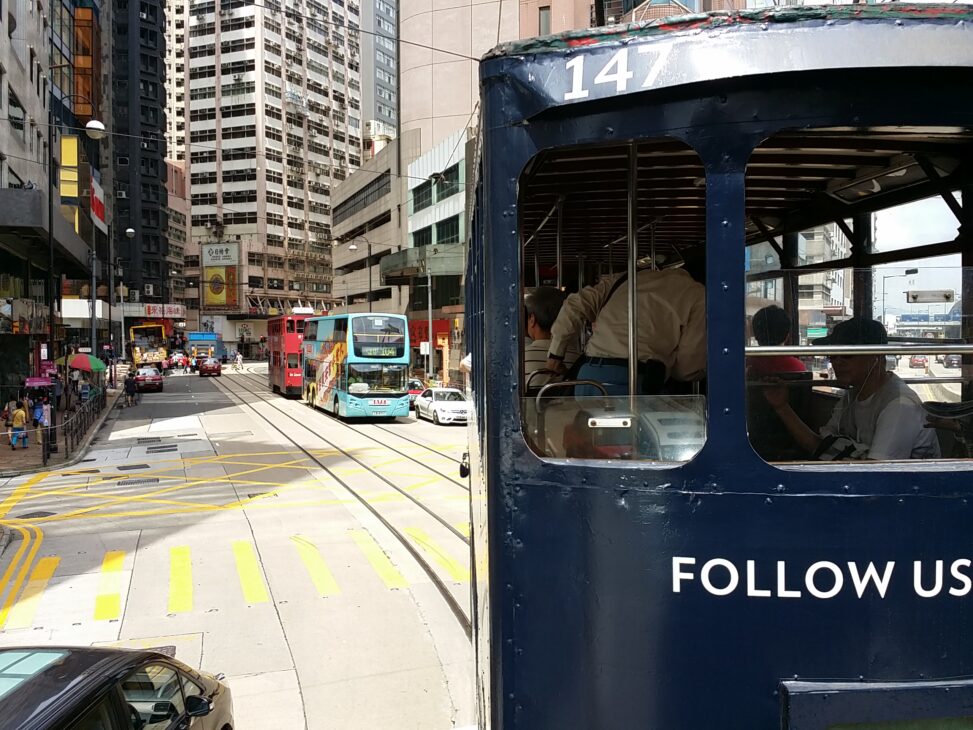Planning to move to another country? Have a happier experience by not doing the following.
Mistake #1: Announce your plans
“We’re moving to Country X!” you tell everyone in real life and on social media, and hey, why not make a YouTube channel about it, too?
Why is this a mistake?
They’ll try to save you
Only a tiny minority of people have the determination and courage to move to another country. Everyone else will try to save you from your insanity.
“It’s too risky! How will you support yourself? What if you need surgery? I heard they don’t like foreigners there. Do they even have internet?”
You’ll get tired of defending yourself, and they’ll feel hurt if you don’t listen to them.
You’ll be reluctant to change plans
Imagine that you’ve proudly and loudly announced a decision, any decision. Then you realize it was a bad decision. What do you do? You stubbornly stick with it to save face, because you’re human, especially if changing your mind will make people say, “I told you so!”
Don’t risk that with your decision to move.
Instead, just do it. Prepare for your move quietly, and mention it only after it’s done. Then frame it as “We’re living in X for now” and not “I HAVE FOUND HEAVEN ON EARTH.”
Mistake #2: Choose a country because it’s impressive
You’re supposed to be impressed by certain places. Of course you’d want to live in Classy Place X! It would even give you bragging rights.
“We’ve bought a villa in Spain!” someone says. But do you know what a “villa” actually is in Spain? It’s a big house outside of town. That’s it. It might have been built three years ago and have a vinyl couch.
“We’re moving to the south of France!” another person announces. Why don’t they say “southern France?” You know why.
Certain places have a strong brand. They sparkle a lot brighter than, say, Albania. But don’t let the sparkle blind you. You could make a painful mistake.

Portugal was recently trendy. Then the government made it harder to get a visa, locals started pushing back, and expats described difficult bureaucracy and long waits. Some people who moved there have left because it couldn’t live up to the hype.
Choose a country because you like and respect it, not because other people like it or will be impressed by it.
Mistake #3: Choose a country because it’s cheap
If I had to pick the unhappiest expats of all the ones I’ve met since 2010, it’s the ones who chose a country because it’s “cheap” and expect too much from it. They’re constantly disappointed.
 Countries are “cheap” because wages are low and the government doesn’t have much money. So of course things won’t work like back home. But some expats forget that. And because they have no other reason to be in the country, they get cranky.
Countries are “cheap” because wages are low and the government doesn’t have much money. So of course things won’t work like back home. But some expats forget that. And because they have no other reason to be in the country, they get cranky.
Of course you need to consider the cost of living. But if low costs are the main reason you’re attracted to a country, and especially if you’re attracted by the promise of “living like a king,” you risk ending up grumpy.
Mistake #4: Choose a country because you speak its language
Your adjustment will be a lot easier if you can talk to locals. But if that’s the main reason you’re interested in that country, take a closer look at its values, culture, politics, government…
It’s tempting to assume that because they speak a language you understand, you also know what their culture will be like. This could result in an unpleasant surprise, like the one I got in Spain.
Mistake #5: Underestimate how much money you’ll need
Even if you have a job in the new country, you need a pile of money for emergencies, trips back to see family, and unforeseen events, such as losing that job.
This is especially true of the countries that are sold as “You can live like a king on practically nothing!” People are tempted to move there with practically nothing. It’s true that emergency dental work will cost less there than in, say, the US, but you still have to pay for it.
Mistake #6: Trap yourself in the new country
Don’t make a long-term commitment to a country you’ve just met.
Don’t buy property right away
Don’t buy that “villa” just yet. Rent for at least a year. Make sure you like not only the local culture but also the freezing winters or infernal summers or frequent fireworks.
Consider using short-term rentals to live in different locations for a few months each. Then, if you do decide to buy, you’ll be more likely to choose the best place for you.
Don’t bring a lot of stuff
Even if you’re just renting, you might be tempted to pay a painful amount to have your belongings shipped to you.
But that expense sets you up for the sunk cost fallacy: You’ve now spent a lot to get your furniture. So if a small inner voice starts to say, “I don’t actually like this country as much as I expected,” you’ll want to respond, “Shut up, inner voice! Don’t you know how much I spent to get here?”
Leave your things in storage or (better) sell them before you leave. You need to stay flexible until you’re sure where you want to be.
Mistake #7: Cling to issues back home
Once you’re in the new country, ignore any drama from your home country. Focus on where you’re living now so you can see it clearly and decide if you want to stay.
This is especially important if you left for political or cultural reasons. It can take a while to detox and stop responding like Pavlov’s slobbering dog to news of another “outrage” back home.
Some tips for quicker detoxing:
- Stop following home news entirely. If a major disaster hits, local media will mention it. And do you really need to know about it if you can’t do anything?
- Mute friends and family who rant on social media. If you want to stay connected with them on Facebook, plugins like Social Media Fixer will hide posts that contain words you’ve identified. X has that feature in its settings.
- Fill your feed with local news and events even if you need a translation plugin to understand them.
- Join local social groups as soon as possible. Even if you can’t speak the language yet, you could try dancing, hiking, or sports. Surround yourself with people who don’t know or care about the issues in your country.
- Avoid ranty expats from your home country. Create alternate social events if necessary.
Mistake #8: Take things personally
A vendor suggested a price that seemed high. A pedestrian bumped into you in a way that seemed aggressive. A waitress ignored you. A bureaucrat was impatient with you.
“It’s because I’m a foreigner!” you think. “Minor situations that might have any number of explanations all happened BECAUSE I’M A FOREIGNER! I hate this place!”
You’re stressed from having to learn a bajillion new things every day and not understanding anything. You’re self-conscious because you’re stressed and maybe because you actually do stand out as a foreigner.
Use this mantra instead: “There’s probably something happening that I don’t understand.”
Maybe the vendor’s price wasn’t inflated; maybe he was offering you the deluxe doodad instead of the cheapo doodad. Maybe the pedestrian bumped into you in the same inoffensive way he would bump into a local, because personal space is a lot smaller here. Maybe the waitress ignored you because restaurant staff ignore everyone here. And maybe the bureaucrat was impatient with you because she is an impatient person.
The first few months will be rough. Don’t judge a country when stress is giving you tunnel vision. Repeat your mantra and things will get easier.

Mistake #9: Socialize only with other foreigners
It’s usually easy to find other foreigners. A Facebook search on “expats in [country or city]” will do it. Look for the signs of a good expat community, and then go to their gatherings or take them out for coffee. But don’t make them your only friends.
A foreigner-only social life has several drawbacks:
- You can get lazy about learning the language, because you get your social fix without it.
- The other foreigners might cling to their home country, getting upset about events there. This makes it harder for you to embrace your new life.
- You can get infected by their views of the country, which might be distorted by their attachments or lack of language skills and local friends.
- You’re expected to agree with them to fit in. This can mean agreeing that the country is backwards or the locals are lazy or…
Try this instead:
-
Meet with foreigners but treat it as shopping for a compatible friend, not finding an instant social group.
-
Look for long-established expats who have local friends. They know best how to be happy here.
-
Push yourself to go to local social gatherings even if you don’t speak the language. Try hiking, dancing, photography outings, sports, games like chess, and other events that don’t require language, or go to language exchanges. You’ll naturally meet bilingual locals and reduce your dependence on the possibly unhappy expats.

Swing dancers in Retiro park, Madrid -
Look for returned locals – people who worked abroad for a long time and have returned. They might speak your native language as a result, and they’ll have some of the same confusion as you about the country, since they’ve been gone for a long time. They also have more nuanced perspectives of the country than other foreigners or locals. You might find them at local social events or high-quality expat gatherings.
Mistake #10: Live in an enclave
It’s appealing and easy to live in a neighborhood where a lot of your neighbors are foreigners like you and the lifestyle is familiar.
It can even be a good idea to start out in one of those neighborhoods. Rent there (don’t buy) until you start to learn the language and master the basics of life.
Then seriously consider moving. You know those neighborhoods that the other foreigners describe as being “very local?” Start hanging out there. What would it be like to live there?
- You’ll learn the language more quickly
- You’ll probably pay less for your housing and food
- You’ll be free of the drama that can occur in expat enclaves
- It will be easier to detox from your home country, if that’s one of your goals
- You’ll wonder why you didn’t do it sooner

Mistake #11: Learn only a bit of the language
In every country, you’ll meet foreigners who have lived there for years and barely manage to order food in the local language.
“I know enough to get by,” they say. “You don’t really need the language here.”
Some say that they’ve learned a few words in the local language “as a kindness” to the locals.
“Kindness” is what royalty bestows on peons. Respect is what the locals deserve.
In most countries, expecting locals to speak English to you ranges from naive to rude. It also limits your life.
Here’s what happens if your language stays at the level of “One beer, please”:
- You have to call a bilingual friend or hire a helper for basic things like scheduling a delivery or paying a bill.
- You have a limited selection of doctors and other service providers.
- You pay more for many services, either because bilingual providers rightfully charge more for their language skill or because you don’t understand what it should cost.
- You put off important things like home repairs or health care because they seem overwhelming without the language.
- If you’re involved in an accident or legal issue, there will be delays as a translator is found for you.
- You won’t understand what’s going on around you, possibly to a dangerous degree.
- You’ll have a limited and easily distorted experience of the country.

If you learn slightly more of the language, you’ll be able to do this:
- Confidently complete basic tasks, like paying bills, filling a prescription, and scheduling deliveries
- Understand the directions someone has given you
- Ask your neighbor how her sick daughter is doing
- Help the elderly person get on the right bus
- Understand that you need to change trains here
- Know that those air-raid sirens are just a test
Your stress will plummet and you’ll start to build a local social life. And if you keep learning, your life will get far richer.
Photo at the top: Hong Kong
